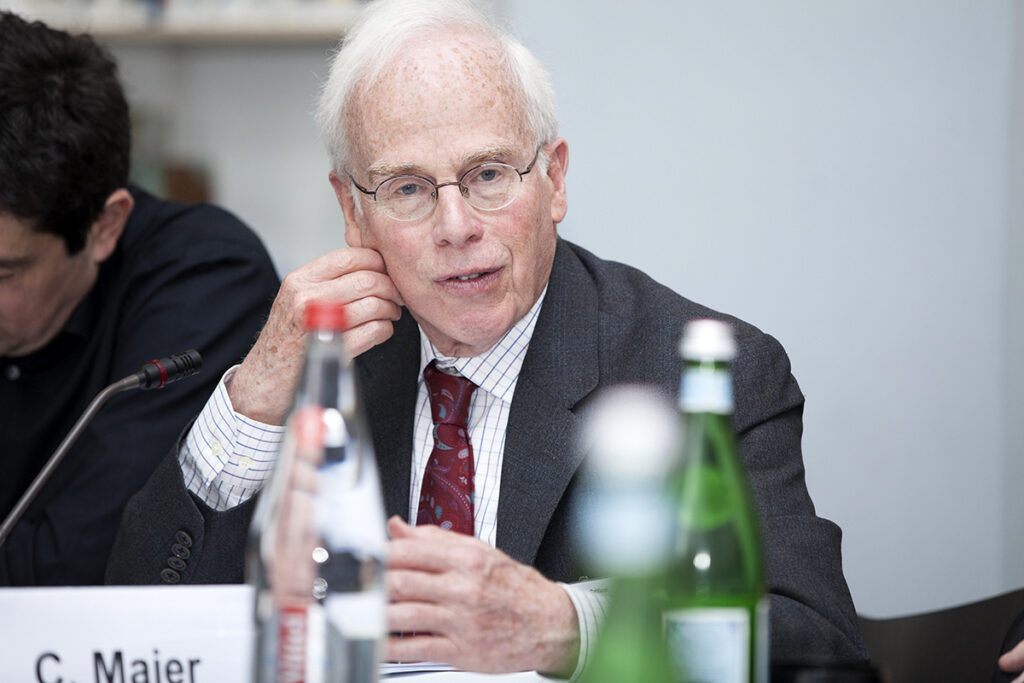Recasting Bourgeois Europe: Stabilization in France, Germany and Italy in the Decade After World War I was written by historian Charles S. Maier and was first published in 1975. This book is a comparative study of France, Germany and Italy in the 1920s. Maier focuses on studying how these three nations attempted to stabilize their governments and economies after World War I. He demonstrates how the ruling conservative Bourgeois of these nations attempted to shield themselves from the all the left-wing movements that were emerging in the early 1920s due to the success of the Russian Revolution. The conservatives knew that the old prewar governments would not work anymore, so they synthesized the old governments with new ideas to create a system the Maier calls “corporatism”. Corporatism is based on various powerful interest groups in society, often in the private sector, being able to exert their influence and make deals with one another to create policy. This came hand in hand with the influence of parliament decaying. Corporatism was a continuation of trends in World War I, where the private sector gained more and more influence while parliaments were becoming weaker and weaker. Despite France, Germany and Italy ended up with different governments by the end of the 1929s, Maier sees clear patterns of corporatism in each of the three nations. Maier argues that not only did corporatism create stability in these nations during the 1920s, but it also ended up being the model for modern capitalism.

This book demonstrates a change in how historians were viewing post World War I Europe. Many historians had a view that at the end of World War I, a light switch was flicked and now all the countries were different due to the Treaty of Versailles and no real significant change occurred until Hitler took power. Maier challenges this view, arguing that not only was change in the 1920s more gradual, but it was a continuation of trends occurring before and during World War I. The impact that the 1920s had on the coming decades was not considered much by historians. Maier once again challenges this view, not only arguing for the impact the 1920s had on the build up to World War II, but also beyond, with his claims that corporatism was the foundation for modern capitalism. Over time, Maier’s view of the 1920s would become more accepted, with historians beginning to understand the true importance of the decade.
Recasting Bourgeois Europe provides to the reader the context of the post World War I era. While the subject matter Maier is discussing in this book is not as flashy as say the fascist takeover of Italy, it is nevertheless just as important. It is important because it is giving the context for that event. By understanding the changing economies and government policies of these nations during this time, it becomes easier to understand why right-wing radicals were dissatisfied with the current situation and felt the need to take action. Context is always important in history. There’s no point in memorizing names and dates if one does not understand the greater context of those names and dates, why they are significant, and how they became significant. That is what Maier achieved with this book.
Bibliography
Jacobson, Jon. “Is There a New International History of the 1920s?” The American Historical Review 88, no. 3 (June 1983): 617-645.
Maier, Charles S.. Recasting Bourgeois Europe: Stabilization in France, Germany, and Italy in the Decade After World War I. Germany: Princeton University Press, 1975.

Nicholas Buonocore is a student at Ramapo College who toke the Discovering Digital History course in the Spring 2021 semester. He was a junior at Ramapo studying history while taking this course.

